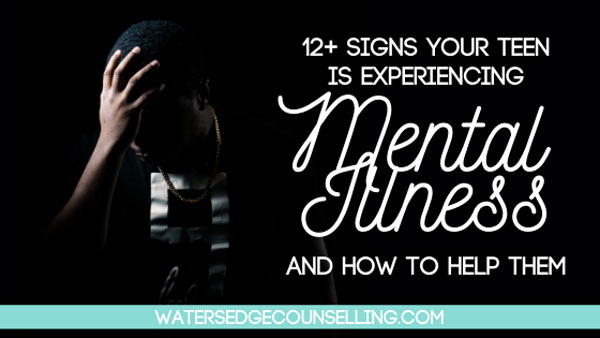
In the last decade, mental illness has become less taboo in the west – but that doesn’t mean it’s any less important. Every human being experiences mental health on a sliding scale, and we all head towards the ‘mental ill health’ side at times.
For some people, that looks like diagnosed mental illness – like depression, anxiety or schizophrenia. For others, it can be a season where life is just really hard, and you feel stuck and helpless.
The team at Happify created this fantastic infographic, showing how mental illness has grown to affect more people in the last ten years. Why is mental illness impacting more people? Well, it could be increase in technology, societal pressures or global events. Or it may be that we are simply more aware of what mental illness is now.
But the fact is that people – especially teenagers – are more at risk of mental illness now. In fact, 1 in 5 people will experience mental health issues, and suicide is one of the leading causes of death across the globe.
The facts are important, but how do we deal with mental illness at home, in our own teenagers? It starts by knowing the signs that they are struggling.
If you are concerned about the wellbeing of a young person in your life, go through this checklist to get a picture of their mental health.
Potential signs of mental illness:
-
Strange sleeping habits
They sleep too much, too little, and/or are lethargic and tired through the day.
-
A loss of interest in the things they used to enjoy
Depression can cause people to go ‘numb’ and become more isolated.
-
Thoughts of suicide
A teen won’t always tell you directly that they have suicidal thoughts. You may have to ask them, or see signs of it on their social media, in their art, music or writing.
-
Periods of elevated energy
Where they display unusual energy and adrenaline and don’t sleep as much.
-
Fear of gaining/losing weight or obsession with exercise
This can impact their eating habits, the way the dress, how often they exercise and even the way they communicate with you.
-
A drop in grades
An uncharacteristic change in results at school, home or at anything suggests something bigger is going on behind the scenes.
-
Self harm behaviours
Read our blog about helping someone who is self harming here.
-
Smoking, drinking, using drugs (legal or legal)
Any substance or habit that is used to numb or escape pain.
-
Isolation
If your teen is spending more time alone, refuses to attend social gatherings or even exit their bedroom, you need to check in on them.
-
Risky behaviour
Sometimes people will be more reckless, or take part in dangerous or risky behaviour when their mental health isn’t doing well.
-
Low energy
Lethargy, needing to nap (a lot), being unmotivated or feeling physically fatigued can all be signs of mental ill health.
-
High anxiety or extreme worries
If fear about the future (or even the now) is taking over their life and they struggle to function, they need some help. You may even find the anxiety is about what you perceive as ‘small’ things (cleanliness, certain animals, going outside, talking to people.)
-
Mind control/ voices
Sometimes people experiencing mental ill health will believe a power is trying to control their mind, or they will hear voices or see things other people cannot. Try not to dismiss this as paranoia (for them this is real, and very scary). Instead encourage them to see a doctor and start a treatment plan.
Knowing that a young person – or anyone – is experiencing mental ill health can be overwhelming. And as you go through this list, you may feel alarmed or in over your head. If you are concerned someone is at immediate risk or is in danger, call 000/911.
It’s not your job to save your teen – it’s your job to help them get the professional support they need. So aside from making sure your teen has the number for their country’s Lifeline saved in their phone (“in case a friend ever needs it”), this infographic details how you can start them on their journey to healing.

Is your teen showing signs of mental illness? Are they acting out of character, reckless or becoming more isolated? Here’s what you need to do: Contact Colleen on 0434 337 245 or Duncan on 0434 331 243 for a FREE 10 minute consultation on how we can best help you or book online now.
Leave a Reply